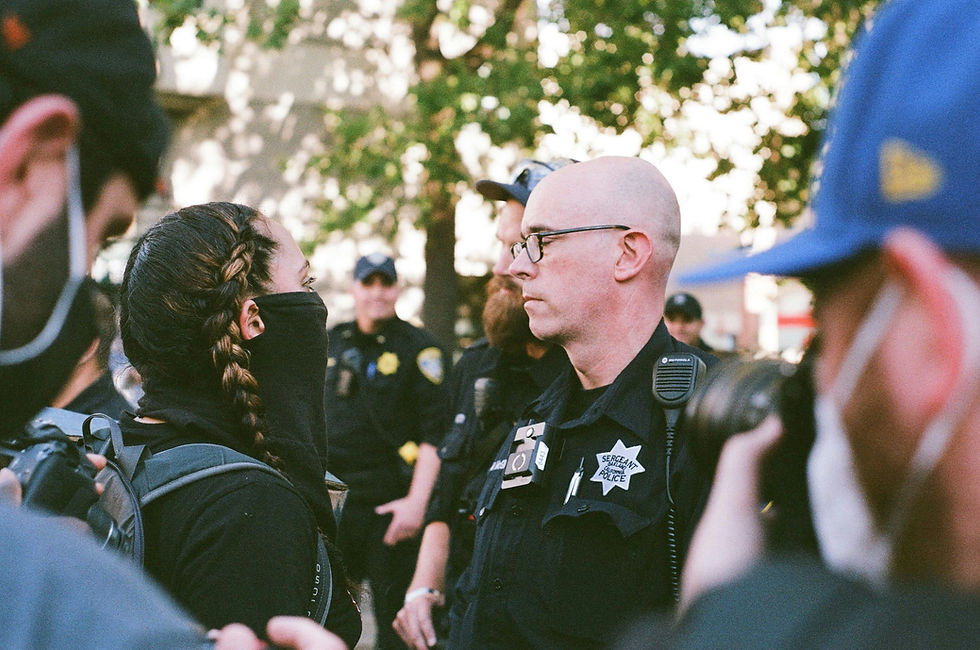Making Your Emergency Support Plan
- Mortellus
- Sep 30, 2025
- 4 min read
Updated: Nov 23, 2025
Because our movements are only as strong as the care we extend to one another.

When we imagine state repression or an unexpected arrest, most of us picture the immediate moment—the flashing lights, the handcuffs, the yelling. But what happens after? Because it isn't just your body on the line—it's a pet that needs feeding, a child who needs picked up from school, and an employer who doesn’t know where you are. Repression is designed to create chaos, and chaos is where we lose power. The way we fight back isn’t only in the street—it’s in the boring, tender paperwork of caring for each other. So, make a plan. Not later. Not when things “calm down.” Now. Because in crisis, uncertainty multiplies. Friends scramble, factions disagree, time is wasted. The best gift you can give yourself and your community is clarity—deciding now what you would want then. Think of it like fire safety—you don’t plan because you want a fire, you plan because you want to make it survivable, so, here’s how to set up your very own Emergency Support Plan.
The Sort of Ugly Questions You Have to Ask Yourself
Who feeds the cat if I don't make it home tonight? Do they have a key to the house?
Who can grab my child from school without raising alarms? Should I add them to a pickup list?
Who do I not want called, even if others think they should be?
If bail is set high, do I want folks emptying their wallets right away, or do I want them to wait it out? Should they start a GoFundMe for legal fees?
Who can handle my prescriptions, my bills, my damn sourdough starter?
Gather Your Basics
Full legal name
Preferred name
Pronouns
Date of birth
Address
Allergies or medical needs
Current prescriptions and pharmacy info
Emergency contacts (and anyone you do not want contacted)
What's Your Life Support?
Pets: feeding, vet info, preferred caretaker
Children: pick-up times, backup caregiver, school contact info
Eldercare or dependents: daily needs and who can cover
Rent/mortgage and utilities: who can manage or cover bills
Employer: do you want them notified? if so, by whom?
Legal & Bail
Preferred attorney(s) or legal aid and contact info
Jail support or bail fund contacts
Bail decision: immediate release vs. waiting for reduction
Any circumstances where you’d decline bail
Communication & Privacy
Preferred secure communication methods
Accounts/devices to be secured or wiped
Where do you prefer updates posted
Who is authorized to post updates
Who should not speak publicly on your behalf
Have you pre-written a statement to be posted in the event that you are arrested or detained?
Assign Roles
This is mutual aid, not martyrdom, and one of the most useful things you can do is identify who in your support network is best for which job.
Possible Roles:
Point person: communicates with lawyer and coordinates others
Pet wrangler: handles animal care
Childcare: handles any childcare needs
Family liaison: keeps relatives informed
Family support: In the event that you have a spouse or partner to take care of the basics, who's taking care of them?
Employer contact: calls in to explain absence.
Public-facing person: issues updates, organizes solidarity and aid.
Put Your Emergency Plan in Writing
A written plan doesn’t need to be fancy—it just needs to be clear. Here’s a fill-in-the-blank template for you to borrow for your own use.
If I am arrested or detained, I want ____________ to contact my lawyer____________, at ____________. Bail preference: [ ] Pay immediately [ ] Wait for reduction (limit $______) GoFundMe preference: [ ] Yes. [ ] No. You can support my family by____________________________________. My pets are at ____________ and can be cared for by ____________. My children attend ____________ and can be picked up by ____________. In case of bills, ____________ can access my account at ____________. Public updates may be posted by ____________, in ____________ places. Please do not notify ____________ unless necessary. Please do not allow ____________ to speak for me.
Lastly: Keep It Alive
A plan doesn’t help anyone if it sits in a drawer. Share it with the trusted people who may need to act on it. Review and update every six months, or anytime something in your life changes. Keep copies both in physical form (sealed envelope) and in a secure digital format (encrypted file). Tell your trusted circle where to find it. The more boring and routine you make this, the less dramatic it feels, and the stronger your people will be when the drama comes.
Making an emergency plan isn’t about paranoia, it’s about love. It says to your friends and family: I trust you. I want to make this easier for you. I want to make sure that if the worst happens, we can focus on care and solidarity instead of scrambling to guess what I’d want. Because repression thrives on chaos. So write it down. Make it clear. The act of planning is itself resistance—because it robs the state of the power to scatter us. And honestly? It’s also love.


Comments